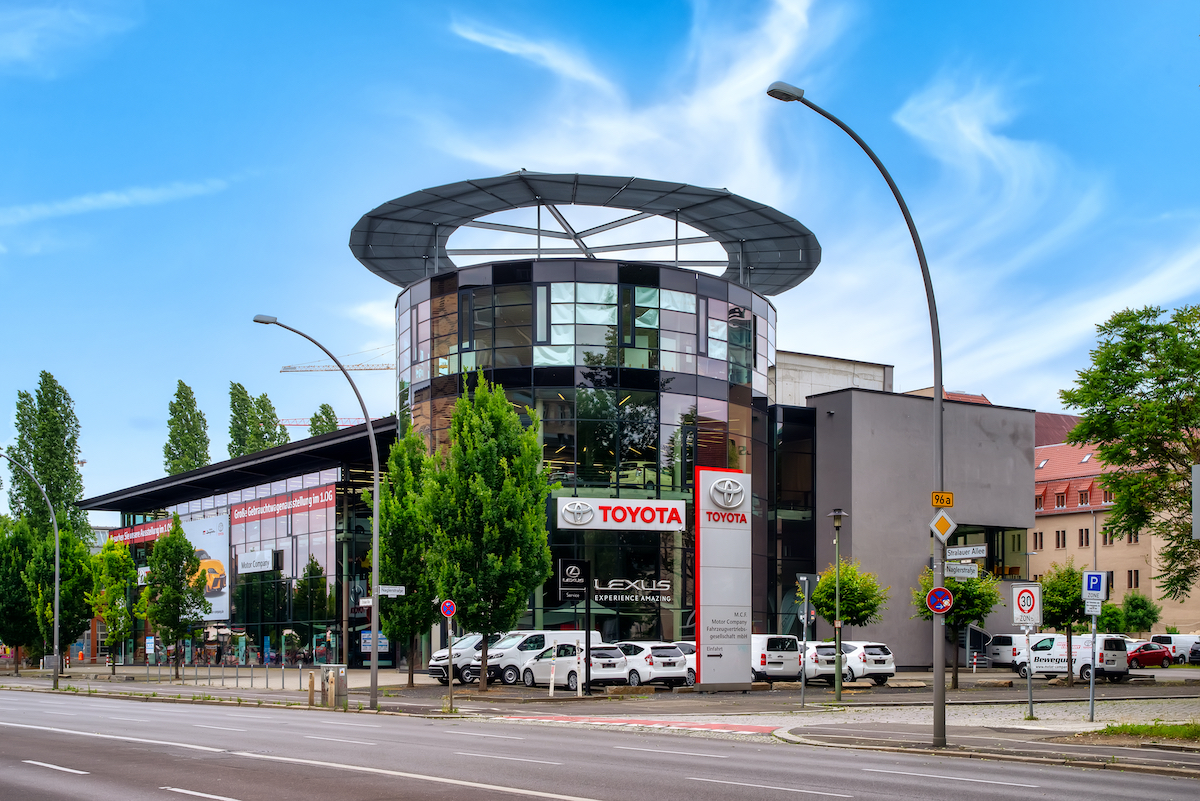Warning on risks: Financial contracts for difference are complex instruments and are associated with a high risk of rapid financial losses due to leverage. On 76.44% of retail investor accounts, financial losses occur when trading financial contracts for difference with this provider. You should consider whether you understand how financial contracts for difference work, and whether you can afford to take the high risk of suffering financial losses. Please read the Risk Disclosures.


Toyota and Daimler made a deal
Toyota and Daimler will combine truck operations
Daimler Truck Holding AG and Toyota Motor Corp have announced a non-binding agreement to merge their truck units in Japan. The agreement entails combining the businesses of Daimler-owned Mitsubishi Fuso Truck and Bus Corp and Toyota subsidiary Hino Motors Ltd under a holding company. The new company's shares are expected to be listed on the Tokyo Stock Exchange's Prime Market.[1] Daimler Truck and Toyota will make equal investments in the company and collaborate on the development of technologies like hydrogen, connectivity, and autonomous driving. The definitive agreement is expected to be signed in first quarter of 2024, with the transaction set to be completed by the end of the following year. In 2020, Hino faced an emissions scandal, uncovering falsified emissions data dating back to 2003. However, it seems that the scandal did not stop them on their way to success. [1]

Movement of Daimler Truck since coming to the market. (Source: Google Finance) *
The price is in EUR as their stocks are listed on German stock exchange. At the time of writing, the exchange rate for 1 EUR was 1,07 USD. *
Mercedes announced two new EVs
Mercedes recently shared positive news during a North American dealer event in Vancouver, British Columbia, where it announced its plans to introduce new all-electric models in 2024. The automaker revealed its upcoming electric CLA sedan, which will directly compete with Tesla's Model 3, and an electric GLC crossover aimed at challenging Tesla's Model Y. The electric CLA sedan will be larger than its internal combustion engine counterpart and boast a range of up to 400 miles. Mercedes intends to target young, tech-savvy customers who are typically drawn to Tesla vehicles, with the expectation that the CLA will attract 60% new buyers to the brand. The electric GLC crossover, on the other hand, is anticipated to have a range of 300 miles, serving as a response to the cancellation of Mercedes' EQC crossover EV due to its limited 220-mile charge range. [2]
Toyota’s April sales rose
Toyota Motor Corp experienced a nearly 5% increase in global sales in April compared to the previous year, driven by higher demand for hybrids and gasoline-powered vehicles in Japan and China. The company also reported improved sales of battery electric vehicles (EVs) internationally, surpassing last year's figures for the first four months of the year. Toyota sold a total of 800,863 vehicles globally in April, including the luxury brand Lexus, marking a 4.9% rise from the same period last year when sales were heavily impacted by supply shortages due to the pandemic. Sales of hybrids, particularly the new Prius, in Japan saw a significant 59.2% year-on-year increase, accounting for over half of the vehicles sold in the domestic market. In China, Toyota experienced a 46.3% sales surge compared to April 2021, rebounding from the pandemic-related impact. The company sold a total of 8,584 battery EVs worldwide in April, surpassing 1% of its global sales in a single month for the first time. This brings the total number of battery-powered vehicles sold by Toyota in the first four months of 2023 to 26,057 units, exceeding the 2022 sales figure of 24,466 battery EVs. [3]

Movement of Toyota stocks in the last five years. (Source: Google Finance) *
Conclusion
As mentioned at the beginning, partnerships are good for innovations and keeping up with competition. We believe that Toyota and Daimler Trucks made a right decision when they decided to open joint company. Apart from this, both companies reported some interesting news and plans for their future projects and releases. We believe, that both companies are worth checking out and keeping an eye on them, as they could present interesting investment. [2]
Adam Austera, chief analyst at Ozios
* Past performance is no guarantee of future results.
[1,2] Forward-looking statements are based on assumptions and current expectations, which may be inaccurate, or based on the current economic environment which is subject to change. Such statements are not guaranteeing of future performance. They involve risks and other uncertainties which are difficult to predict. Results could differ materially from those expressed or implied in any forward-looking statements.
---------